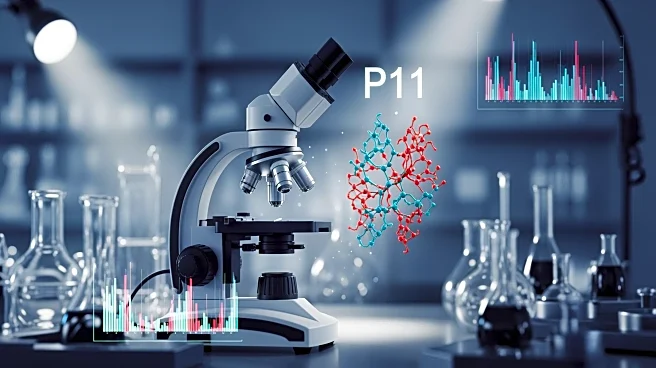What's Happening?
A study published in Nature explores the role of the P11 protein in social dysfunction and anxiety-related behaviors in mice. Researchers used chronic stress and P11 mutant mice models to investigate the corticoaccumbal
pathway, which is modulated by dopamine and acetylcholine. The study found that alterations in these neurotransmitters are linked to increased anxiety and impaired social behaviors. The research highlights the importance of the P11 protein in regulating social motivation and emotional discrimination, suggesting that its absence leads to anxiety-like behaviors and social impairments.
Why It's Important?
The findings provide significant insights into the biological mechanisms underlying social dysfunction and anxiety, which are common in mental health disorders like depression. Understanding the role of the P11 protein could lead to new therapeutic targets for treating social and emotional deficits in humans. This research emphasizes the complex interplay between neurotransmitters and social behavior, potentially influencing future studies and treatments for mental health conditions.









